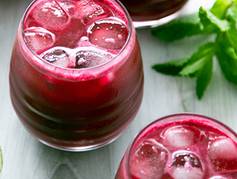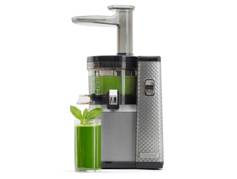Guide to Juicing
Tips for Storing Juice


Your juice can be stored in its airtight container in the fridge for 24 - 48 hours and up to 72 hours at the absolute most.
The most ideal way to consume juice is to drink it immediately after making it, but of course, sometimes this is not possible. Making juice ahead of time can be a huge time saver and more convenient especially when you want to make a large batch that you will drink over a few days. Being prepared can make regular juice consumption more attainable. So what happens when we make our juices ahead of time? We store them! Work commitments, travel, personal obligations and a busy schedule can all pose challenges to consuming freshly made juices immediately.
The key is to store your juices in such a way as to reduce nutrient degradation as much as possible and we have a few tips to help you do this. The first being to store your juices in airtight glass containers. It is also important to store your juice immediately after preparation. If you fill the storage container as close to the top as possible it will help reduce oxygen exposure within the container. It is also helpful to add a piece of citrus such as lemon, lime or grapefruit, into the stored juice as it can reduce nutrient loss by boosting the Vitamin C content, citric acid and other antioxidants in your juice (similar to when a lemon is squeezed over an avocado or apples reduces the browning and oxidation).
Your juice can be stored in its airtight container in the fridge for 24 - 48 hours and up to 72 hours at the absolute most. If you need to store juices longer than that we suggest you freeze them. However, if freezing them, it is then advisable to thaw in the refrigerator and drink immediately. And since liquid expands when it freezes, be sure to leave a bit more space in the container if you are planning to freeze them.
As mentioned before, the process that causes the apples to go brown so quickly is known as oxidation, which is simply a reaction of the nutrient compounds being exposed to oxygen. Juice is even more susceptible to oxidation because when fruits and vegetables are juiced the cell walls of the produce are broken down which allows the nutrients to be exposed to air, heat and light and with time these factors will contribute to the nutrient degeneration. The longer a juice sits around for, the more the juice nutrients will be oxidized and damaged. So it is best to drink your juices immediately after preparing them and try to consume them all within 48 hours.
Your juice can be stored in its airtight container in the fridge for 24 - 48 hours and up to 72 hours at the absolute most.
- Choosing a selection results in a full page refresh.
- Press the space key then arrow keys to make a selection.


